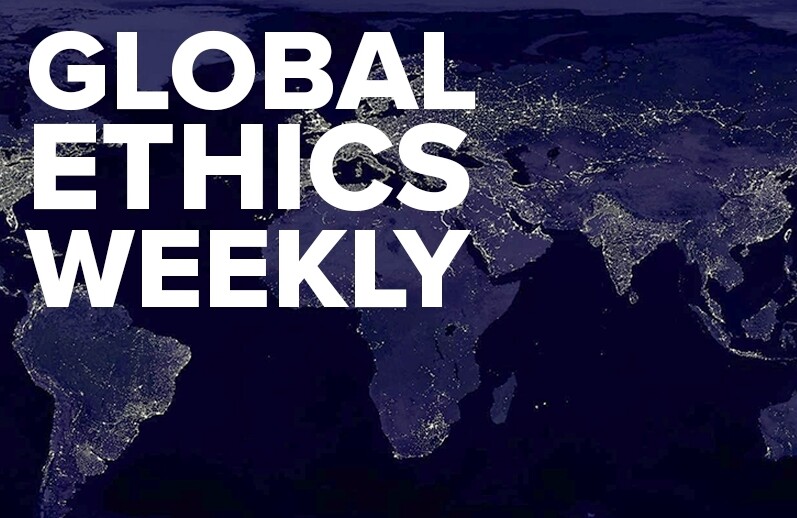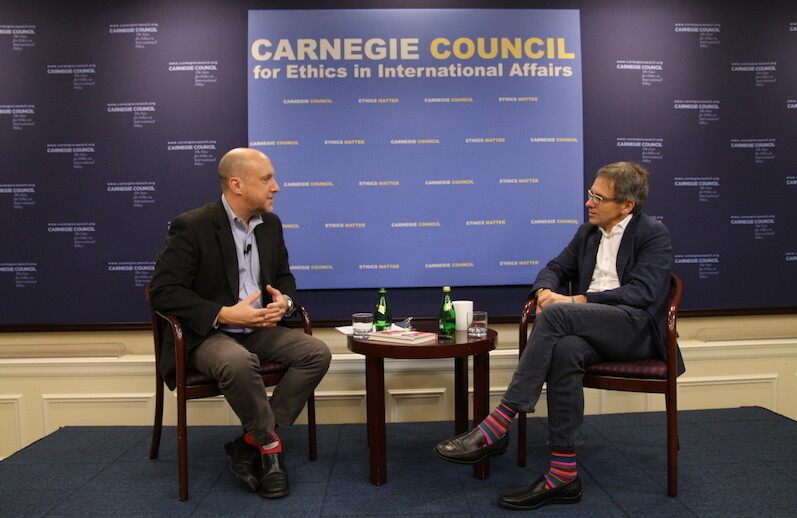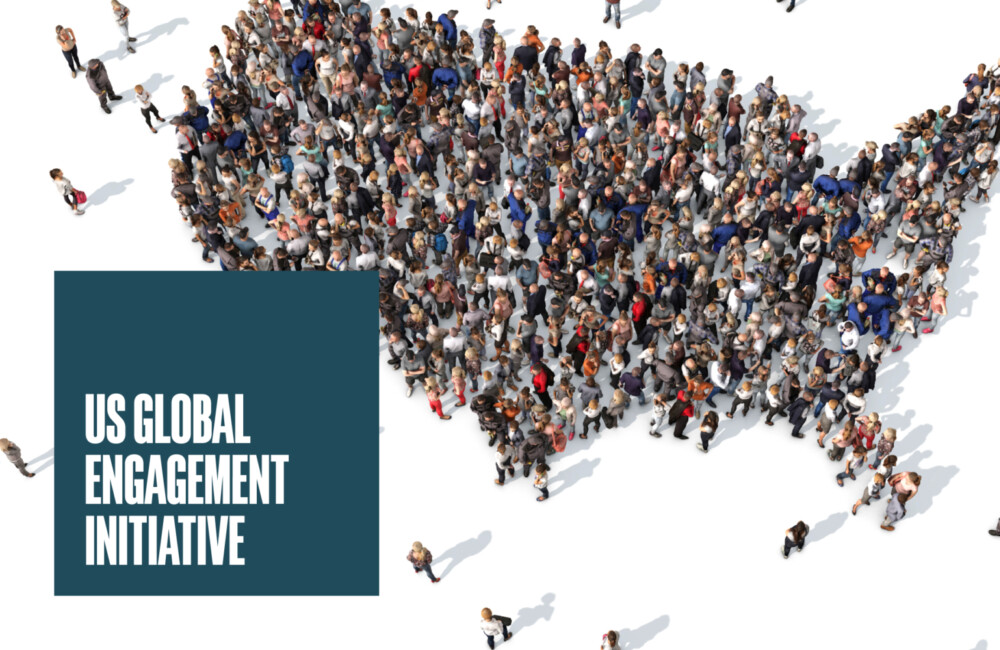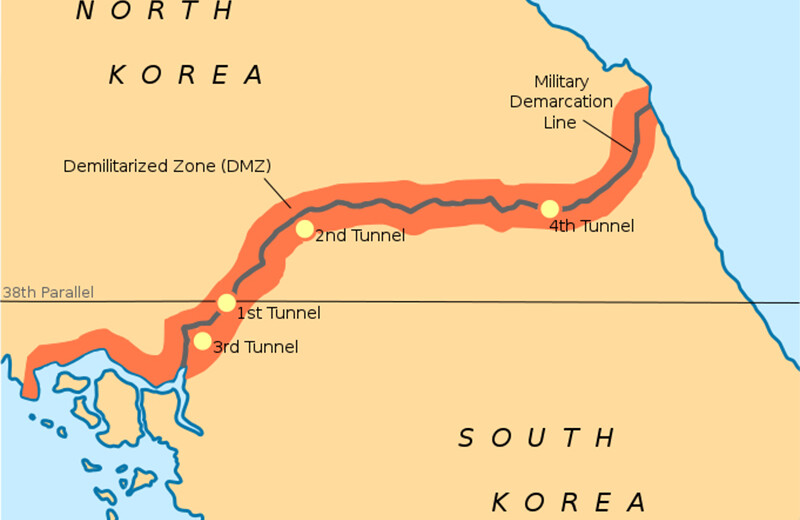Framing ethical perspectives
Multilateralism refers to a group of nations working together for a common goal. It is at the heart of international relations as nation-states form alliances with like-minded countries to take on global issues, such as climate, emerging technology, inequality, and collective security. Carnegie Council sees multilateralism as essential to generating solutions to global problems and a critical component of an ethical present and future.
Featured Multilateralism Resources
Inclusivity, AI & climate governance, and more
FEB 27, 2024 • Video
A Carnegie Council Conversation with the UK Home Secretary
MAR 28, 2024 • Video
Unlocking Cooperation: The Global South and Global North
In the inaugural panel of the "Unlocking Cooperation" series, Ramu Damodaran leads a discussion on forging a path forward for Global South/North collaboration.
OCT 18, 2023 • Video
Unlocking Cooperation: A Global Ethics Day Special Event
In this keynote event for Global Ethics Day 2023, Carnegie Council President Joel Rosenthal led a conversation on the psychology behind cooperation; ways that states, institutions, ...
Subscribe to the Carnegie Ethics Newsletter for more on ethics and international affairs
Related Initiatives
Model International Mobility Convention
The primary goal of the Model International Mobility Convention (MIMC) is to formulate new rules for migration and asylum that can benefit both migrants and refugees as well as their states of origin, transit, and destination.
Carnegie Ethics Accelerator
The Carnegie Ethics Accelerator is a new kind of incubator designed to empower ethics in the face of swiftly evolving challenges in technology and public policies.
Explore Our Multilateralism Resources

JAN 17, 2019 • Podcast
Global Ethics Weekly: 1919 & the Modern World, with Ted Widmer
Historian Ted Widmer discusses his new Carnegie Council podcast series "The Crack-Up" and how 1919 has shaped the modern world. He and host Alex Woodson speak ...

JAN 16, 2019 • Podcast
Top Risks and Ethical Decisions 2019, with Ian Bremmer
The wide array of global issues--more than 90 percent of them--that Eurasia Group follows are now headed in the wrong direction in 2019. Eurasia Group president Ian ...

JAN 16, 2019 • Podcast
Ian Bremmer & Tom Nichols on Globalization, Populism, & American Politics
If populism is a reaction to a globalism that is viewed as unresponsive to the needs of citizens, can populism sustain any version of globalization? ...

JAN 9, 2019 • Podcast
Global Ethics Weekly: U.S. Defense Policy After Mattis, with Asha Castleberry
National security expert and U.S. Army veteran Asha Castleberry makes sense of a busy and seemingly chaotic time for the Department of Defense in ...

JAN 3, 2019 • Article
Ethics and the Syria Withdrawal
Referencing an "Atlantic" article by Conor Fridersdorf, Nikolas Gvosdev goes over some important and overlooked ethical questions surrounding Trump's decision to withraw U.S. troops ...

DEC 14, 2018 • Podcast
The Korean Peninsula: One of America’s Greatest Foreign Policy Challenges, with Christopher R. Hill
There are few, if any, who understand the Korean Peninsula situation better than Ambassador Hill. He served as U.S. ambassador to South Korea and ...

DEC 13, 2018 • Podcast
Global Ethics Weekly: Foreign Policy After the Midterms, with Nikolas Gvosdev
Carnegie Council Senior Fellow Nikolas Gvosdev and host Alex Woodson discuss the state of foreign policy after the midterm elections. How can newcomers like Alexandria ...

DEC 12, 2018 • Podcast
Russia's Information Warfare, with Molly McKew
"You saw the Russians start to pay attention to social media, in particular after Obama's election, because the way that he was elected was new ...

DEC 10, 2018 • Article
Warren and Haley: Post-Trump Foreign Policies?
What will U.S. foreign policy look like post-Trump? Elizabeth Warren and Nikki Haley recently offered up their first drafts of what this could look ...

DEC 6, 2018 • Podcast
Global Ethics Weekly: The End of World War I & the Future of American Democracy, with Ted Widmer
Historian and Carnegie Council Senior Fellow Ted Widmer looks back to the end of the First World War, and the upheaval that followed it in ...




